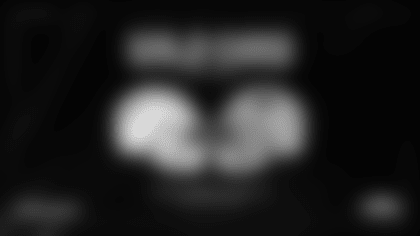With training camps come contact and the risk of player injury. Often lost in the annual summer action is the reality that sports tech companies are delivering potential breakthroughs to address head health challenges from the youth level to the pros.
The Mobile Virtual Player remote-controlled robotic tackling dummy, the emergence of the Vicis high-tech helmet, the launch of the Concussionometer and a first-of-its-kind NFL coaching clinic this week, together demonstrate the growing response to the safety needs of players in contact sports.
It's no secret that concern about player injuries at any level of football has broadened and risen in recent years. At the same time, a legion of sports tech startups and giants are running a race without a finish line to create and develop solutions to complex injury issues centered on head health.
Grass Roots to the Big Show
The ongoing need for breakthrough products for the head health challenge extend far beyond pro football as was witnessed this week with former Kansas City Chiefs Placekicking Star Nick Lowery's pledge to help fuel deployment of the Mobile Virtual Player (MVP) tackling dummy to high schools in the State of Arizona.

One, Arcadia High School, will become among the first in the nation to use the MVP, the remote-controlled, robotic tackling dummy developed at Dartmouth College. The Nick Lowery Youth Foundation hopes to help bring the MVP to bring to his hometown of Phoenix.
The MVP was developed with a plan of allowing players to tackle while minimizing the risk of head and neck injuries. Will use of the padded device lead to elimination of the longstanding routine of teammates tackling teammates in drills, practices and intra-squad scrimmages. That would be fine with many, but will take time. Why this focus? MVP Partner Rogers Athletic claims:
- In youth football, 53% of all injuries and 46% of all concussions occurred during practice; with the most common mechanism of injury was player contact.
- In high school football, the company contends, 60-75% of head trauma occurs in practice, not in games.
Lowery hopes all high schools in the state will have the MVP in the next few years. His foundation will contribute to the worthy cause.

"When you change the landscape of football and reduce the concussions 60 percent and reduce the injuries 80 percent, now all the other technological things -- better helmets, better protocols, better safety -- those things will reduce it further," Lowery told ABC15 TV in Arizona. "Hopefully Arcadia and all the high schools in Phoenix and Arizona will have these in the next few years."
The MVP has caught the eye of several NFL teams who have or wish to put the unique device through its paces. Interesting note: Lowery attended Dartmouth College, the birthplace of the MVP.
Helmet Head
Advanced helmet maker Vicis, a once-small startup with big goals is now amid a big growth spurt interest-wise with orders from a reported 12 NFL clubs for its product and a new $10 million infusion to fuel its evolution.
The company claims it has achieved advances in reducing the impact of contact on wearers through the use of multiple layers work together to slow impact forces. The helmet features a soft outer shell and an underlying layer of columns designed to mitigate collisions from multiple directions. Its design enabled wider peripheral views.

The company's Zero1 helmet attracted interest a few years ago from the NFL and GE as part of the duo's Head Health Challenge, whereby sports tech startups competed for funding and other support with hundreds of like-minded firms from around the globe.
Vicis won funding as part of this effort and has continually evolved the Zero1 with direct input from early users. The company sports a neurosurgeon confounder and has taken data from other ones on its scientific advisory board (and equipment managers) to create the "fit system" for the helmet. The Zero1 offers 60 different sizing combinations, according to the firm.
High-profile support from investor Dallas Cowboys Hall of Fame QB Roger Staubach and Seattle Seahawks Wide Receiver Doug Baldwin will likely advance the company's product.
Diagnosis Down Under
The MVP had a cameo in last year's Hard Knocks series. The Vicis Zero1 has a fast-rising profile in the NFL. But who's heard of the Concussionometer? It's not a late night special TV only offer that includes extra units if you order immediately using an 800 number and pay for extra shipping and handling.
No, the Concussionometer, is a system created by HeadsafeIP in Australia that's designed to provide more accurate concussion diagnosis capabilities quickly after an impact is sustained. A player need put on what look like shades from a sci-fi movie which collects data which is sent to the companion smartphone app.

The Aussie firm claims concussion diagnosis "is shrouded in subjectivity, opinion and dogma. It's complicated. It's subjective. It's time-consuming and sometimes inaccurate.
The startup claims its product and app together correctly and quickly measure impact after hits to provide accuracy in their diagnosis. The Concussionometer was launched just weeks ago by Dr Adrian Cohen and the Headsafe team at the University of Sydney.
Concussionometer asserts the following:
- There are an estimated 10 million sports concussions annually
- Less than 10% are diagnosed correctly at the time
- One third of all sports concussions happen at practice
- Less than 10% of concussions involve being knocked out
The system measures the brain's normal electrical activity, enabling it to detect abnormal activity. Electrical activity changes distinctly in a concussion and the wearer of the device can be tested in just two to three minutes, significantly quicker than the sports concussion assessment tool (SCAT) tests used today, according to the firm's founder.
The headset flashes lights into the player's eyes. The resulting electroencephalogram is recorded in the phone. It looks at that, compares it to the player's baseline electrical activity and tells you whether it's different. The whole test takes two to three minutes, according to the company.
The Concussionometer is expected to sell for $200 to $300, with an additional software licence fee of about $20 a season, according to an Australian media report. That's more than most anything sold on late night TV, but it seems like a small price to pay for sports teams whose players are at risk of blows to the head.
New Coaching Clinic
Addressing the ongoing need to provide greater player safety and avoid injury takes many shapes, especially with advances in sports technology.
Based on urging from the its Personnel Development Group last Fall, the league has created a first-of-its-kind event - the NFL Coaching Clinic - designed "to provide a foundation for communicating and teaching position fundamentals through engaging and interactive sessions."
The NFL said the event this week in New Jersey will focus on the quarterback, offensive line, linebacker and defensive line positions. Participants were nominated by NFL clubs and include team representatives who currently have one-to-three years of coaching experience.

During the three-day event, a panel "of retired or inactive coaches will instruct and demonstrate techniques, discuss effective communication, and share perspectives on best practices," according to the league. "There will also be presentations, panel discussions, breakout sessions and on-the-field demonstrations."
The list of executives and coaches that the NFL says will serve as faculty includes: Troy Vincent, Bill Polian, Matt Birk, Ted Cottrell, Kevin Gilbride, Al Groh, Ray Hamilton, Jim McNally, Howard Mudd, Jimmy Raye, Sr., Norv Turner, and Dave Wannstedt.
The NFL explained that topics at the unique event will include best practices for communicating with players, basic mechanics for each position, fundamentals in the contact zone, building player confidence, and improving timing and recognition skills. Note mention of the "contact zone."
Vincent, a former NFL player who serves as the executive vice-president of Football Operations, believes the inaugural NFL Coaching Clinic has much to offer.
"Our peer-to-peer model brings together the best in football to exchange ideas, get into the nuances of coaching, and inspire the next generation of great coaches," said Vincent in prepared comments. "There are so many aspects to coaching beyond the Xs and Os, and this affords our younger coaches a first-hand opportunity to see models of best practices and achievement from coaches with more experience."
The Bottom Line
The above-mentioned breakthroughs in player safety in general and head health specifically are - for the most part - still in early stages of their evolution. After the product launch stage comes testing and evaluation by teams and leagues. Actual use represents a true breakthrough in the high stakes bid to boost player safety.
When it comes to tackling head health challenges, there is a very real need for speed. The burgeoning sports tech industry is working feverishly to accelerate the creation-to-delivery process so their innovations can take the field along with players.
Stay tuned.
Bob Wallace is a technology journalist with over 30 years of experience explaining how new services, apps, consumer electronic devices and video sources are reshaping the wide world of sports. Wallace has specific expertise in explaining developments at the intersection of sports and technology. He's the Founder of Fast Forward Thinking LLC.































